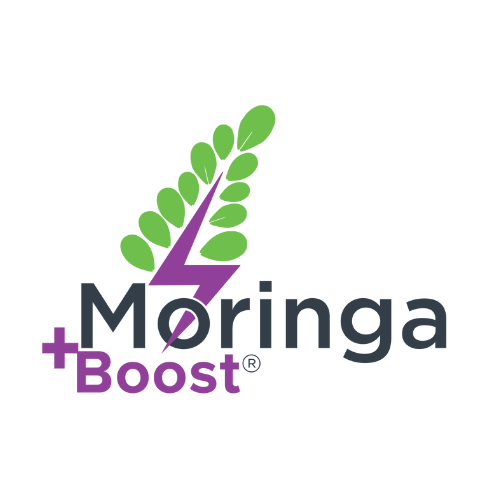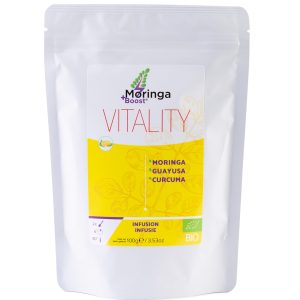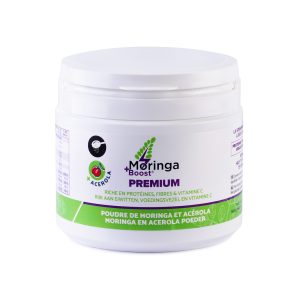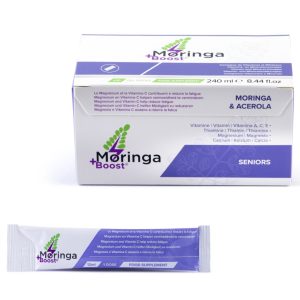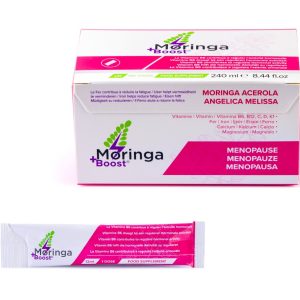You’ve probably heard of amino acids, but do you really know what they are and how crucial they are to your health? They are the essential building blocks of proteins, and without them, life as we know it would simply not be possible.
In the complex world of nutrition, there are fundamental elements that are often overlooked, but which play an essential role in our health and well-being. Amino acids are among them. These organic compounds are in fact the building blocks of proteins. In this article, we’ll explore in detail what they are, why they’re so crucial and how the amazing moringa plant provides an exceptional source of amino acids, including all eight essential ones.
● Amino Acids : The Bases of Life
Amino acids are the basic building blocks of life. They are organic compounds containing carbon, hydrogen, oxygen and nitrogen. There are around 20 different amino acids that interact to form a multitude of proteins, each with its own biological function.
They can be divided into two main categories:
- Essential Amino Acids: These are those which the human body cannot produce by itself, so must be obtained through the diet. The eight essential acidoamines are leucine, isoleucine, valine, methionine, phenylalanine, threonine, tryptophan and lysine.
- Non-Essential Amino Acids : The body can synthesize these substances from other nutrients. As a result, they do not need to be taken directly from the diet.

● Fundamental role of Amino Acids in the Body
Amino acids play a crucial role in the human body, participating in many vital functions. Moringa is also rich in essential nutrients that support vital bodily functions. Moringa’s essential fatty acids play a crucial role in maintaining cardiovascular health.
Here are some of the most important contributions:
Protein construction
Amino acids are essential for protein formation. Proteins, in turn, are the basic building blocks of all our body’s tissues and organs. They play an essential role in growth, tissue repair and cell renewal.
Immune Support
Certain amino acids, such as glutamine, play a key role in immune function. They help fight infection and strengthen the immune system. Consumption of Moringa, which is rich in amino acids, is beneficial to health, particularly for boosting the immune system.
Neurotransmitter synthesis
Neurotransmitters, which regulate communication between nerve cells, depend on certain amino acids, notably serotonin, dopamine and noradrenalin, for their synthesis. This influences our mood, cognition and behavior.
Nutrient Transport
This class of chemical compounds plays a key role in transporting essential nutrients such as oxygen throughout the body.
Maintaining Acid-Base Balance
Certain amino acids, such as glutamine, help maintain the body’s acid-base balance, contributing to blood pH regulation.
Hormonal functions
Amino acids are also involved in the synthesis of certain hormones, such as insulin and glucagon, which regulate metabolism.
Tissue Repair
Amino acids are crucial for wound healing, muscle repair after exercise and regeneration of damaged cells.
● Dietary sources of Amino Acids
Now that we understand just how important this class of chemical compounds is, it’s time to find out where to find them in our daily diet.
Here are some food sources rich in amino acids:
- Meat and fish: Animal sources such as meat, fish and eggs are preferable. These foods are often considered complete protein sources, as they provide all the essential amino acids.
- Dairy products: Milk, cheese and yogurt are excellent sources of amino acids, particularly casein and whey, two types of protein found in dairy products.
- Pulses: Beans, lentils, chickpeas and peas are also good sources for vegetarians and vegans. By combining different types of legumes with cereals, we can achieve a more complete amino acid profile.
- Wholegrain cereals: Whole grains such as quinoa, oats and spelt also contain essential amino acids. By including them in your diet, you can increase your daily intake.
- Nuts and seeds: Nuts and seeds, such as almonds, sunflower seeds and chia seeds, are good sources of amino acids, especially for people on a vegan diet.
Let’s take a look at how Moringa provides a full range of vitamins and minerals.
● Moringa: an exceptional source of amino acids
Moringa, also known as the “miracle tree” for its many health benefits. This superfood is particularly rich in vitamins, contributing to a balanced diet and overall health.
Each Moringa leaf contains an essential nutrient to keep our bodies healthy. In addition to amino acids, Moringa also contains essential fatty acids beneficial for hormonal balance.
This superfood, native to India, is one of the few plant sources to contain all eight essential amino acids.
This makes it an exceptional option for those seeking a complete source of amino acids in their diet, and indispensable for those who choose an exclusively or predominantly plant-based diet.
Of the eight essential amino acids found in Moringa, here is an overview of their role and importance:
- Leucine: Leucine is crucial for muscle growth and blood sugar regulation.
- Isoleucine: This compound is essential for hemoglobin formation and metabolism regulation.
- Valine: Valine is important for muscle tissue repair and energy production.
- Methionine: An essential precursor for the synthesis of cysteine, an amino acid that plays a key role in the body’s detoxification process.
- Phenylalanine: Phenylalanine is a fundamental component of tyrosine, which is necessary for the production of essential neurotransmitters.
- Threonine: This amino acid contributes to the formation of collagen, skin and nails.
- Tryptophan: Essential for the synthesis of serotonin, a neurotransmitter that regulates mood and sleep.
- Lysine: Lysine is involved in tissue growth and repair.
● Food Supplements
If you prefer simplicity, opt for MoringaBoost dietary supplements. Moringa is often used as a dietary supplement due to its high content of essential amino acids.
MoringaBoost IMMUNE SYSTEM capsules
To boost your immune system and protect your body, we recommend that you follow the IMMUNE SYSTEM MoringaBoost program for 60 consecutive days, with the exception of pregnant women and children.
When should you use them?
Mainly in autumn and early winter, to prepare and protect the body against viral and seasonal aggressions.
All year round, when feeling weak, to benefit from Moringa’s permanent supply of Magnesium, Zinc and Vitamin D.
MoringaBoost Food Gel Sticks MENOPAUSE
Dietary supplement with Moringa, Acerola, Angelica and Lemon balm.
Contains magnesium, calcium, iron and vitamins B6, B12, C, D and K1.
MoringaBoost Menopause gel sticks have been designed to support women during the transitional period of menopause, and in their new post-menopausal lives, by providing essential vitamins and minerals to strengthen the body.
When should you use them?
From the first symptoms of menopause.
To prevent osteoporosis, vascular disorders, skin aging and reduce fatigue, it’s important to strengthen your defenses with a dietary supplement specifically designed for women in menopause and post-menopause.
The Vitamins B6, B12, C, D and K1, as well as Magnesium, Iron and Calcium found in MoringaBoost Menopause gel sticks are the elements a woman’s body needs during this new phase of life.
MoringaBoost SENIORS Food Gel Sticks
Moringa and Acerola-based dietary supplement.
Contains magnesium, calcium and vitamins A, B1, C and E.
MoringaBoost Seniors gel sticks have been designed to help protect the body from premature aging and strengthen the immune system.
When should you use them?
Taking MoringaBoost Seniors in gel stick form every day is an excellent way to prevent the side effects of cell aging, reduce the risk of cataracts and boost the body’s energy production, particularly in the brain and muscles.
● Conclusion
Amino Acids, Pillars of Health
These substances are the basic building blocks of life, essential for growth, tissue repair and the proper functioning of the body. They are present in many of the foods we consume on a regular basis, but Moringa stands out as an exceptional source of essential amino acids.
By incorporating Moringa into your diet, you can enjoy its many health benefits, while ensuring that your body has all the essential nutrients it needs to function properly.
Don’t forget that the key to optimal health lies in a balanced and varied diet, rich in essential amino acids and other essential nutrients.
So add Moringa to your diet today for radiant health and renewed vitality!
● References
- 9 essential along with 7 nonessential amino acids: PMC Article on Moringa
- Lysine and methionine as essential amino acids: ResearchGate Study on Amino Acids in Moringa
- Antioxidant properties of Moringa oleifera seed : PMC Article on Antioxidant Properties
